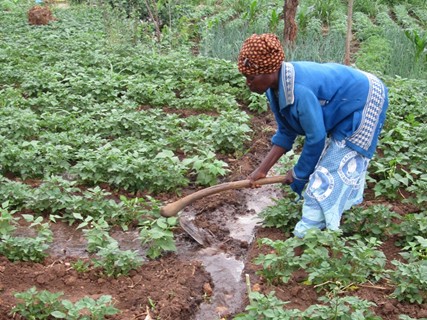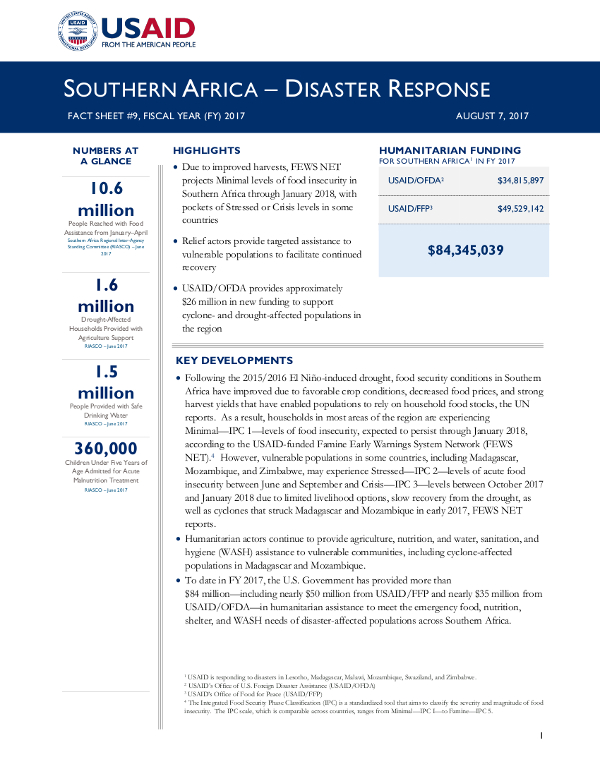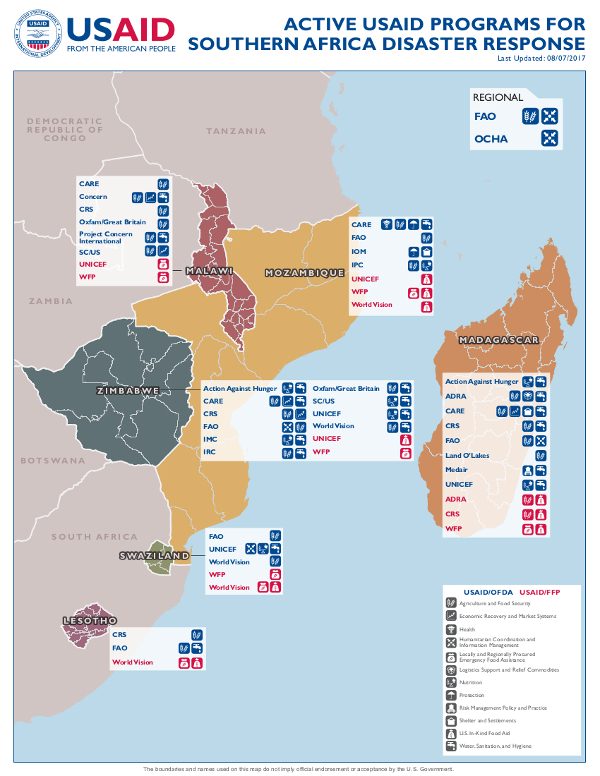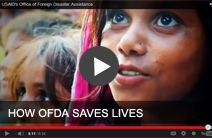- What We Do
- Agriculture and Food Security
- Democracy, Human Rights and Governance
- Economic Growth and Trade
- Education
- Ending Extreme Poverty
- Environment and Global Climate Change
- Gender Equality and Women's Empowerment
- Global Health
- Water and Sanitation
- Working in Crises and Conflict
- Disaster Assistance
- Political Transition Initiatives
- Conflict Mitigation and Prevention
- Countering Violent Extremism
- Disaster Risk Reduction
- Peacebuilding and Reconciliation
- Providing Safe & Secure Environments for Development
- Recovering From Crisis
- Resilience
- Tech Challenge for Atrocity Prevention
- World Humanitarian Day
- U.S. Global Development Lab

Latest Southern Africa Fact Sheet
Southern Africa Map - 08-07-2017 ![]() (pdf - 599k)
(pdf - 599k)
Key Developments
USAID’s Office of U.S. Foreign Disaster Assistance (USAID/OFDA) is responding to disasters in Lesotho, Madagascar, Malawi, Mozambique, Swaziland, and Zimbabwe.
The USAID-funded Famine Early Warnings System Network (FEWS NET) expects Minimal levels of food insecurity in Malawi through January 2018 as a result of above-average crop production and resultant increases in household food stocks. However, FEWS NET predicts Stressed levels of food insecurity in areas severely affected by drought and fall armyworm—particularly in Malawi’s extreme north and south—until September and Crisis levels of food insecurity between October 2017 and January 2018.
Overall, the nutrition situation in Malawi has improved since 2016, as the prevalence of global acute malnutrition decreased from approximately 4.1 percent in December 2016 to approximately 2.2 percent in May 2017, according to the July 2017 post-harvest Standardized Monitoring and Assessment of Relief and Transitions survey.
USAID's Office of U.S. Foreign Disaster Assistance (USAID/OFDA) is responding to a regional drought in Southern Africa. Please visit our webpage for additional information.
Background
Malawi experiences a variety of natural disasters, including cyclones, cylical drought, earthquakes, flooding, and severe storms. In addition, vulnerable populations experience recurring food insecurity. USAID/OFDA’s strategy in Malawi includes responding to urgent humanitarian needs while also supporting disaster risk reduction (DRR) initiatives which strengthen the resilience of communities. USAID/OFDA DRR programs include activities that promote conservation agriculture, the use of flood- and drought-tolerant seeds, and train local and national authorities in disaster response management.










Comment
Make a general inquiry or suggest an improvement.